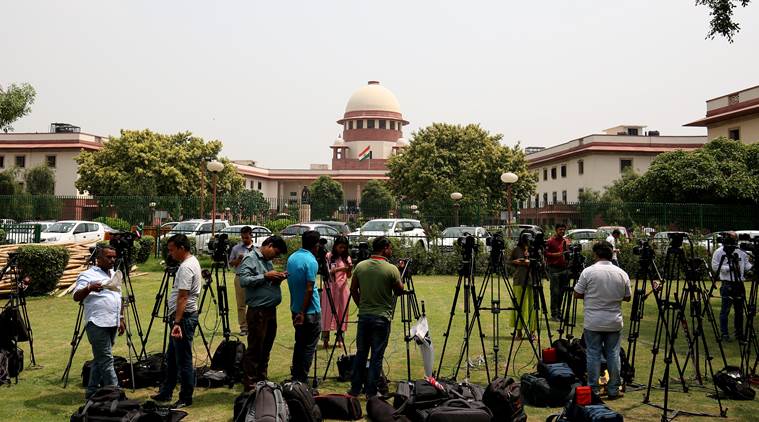 The government has sought an extension of six more months, citing that the physical verification of claims and the hearing of objections and grievances was time-consuming. (File)
The government has sought an extension of six more months, citing that the physical verification of claims and the hearing of objections and grievances was time-consuming. (File)
The process of disbursing Rs 15 crore to around 35,000 tea garden workers across north Bengal by the state government has hit a major roadblock.The government Friday contended in the Supreme Court that the figures furnished by the Tea Board, on basis of the which the amount was to be distributed, were “inflated’’.
The Supreme Court had, on April 4 this year, directed the governments of Assam, West Bengal, Kerala and Tamil Nadu to pay pending dues to workers of tea plantations and to those working in the plantations that had been shut down. The order came after a contempt petition filed by the Paschim Banga Khet Majdoor Samity (PBKMS). The disbursement was supposed to be completed within two months and the West Bengal government had started the work on June 2.
In the affidavit, the state government has said that the Tea Board needs to take responsibility of the gardens which fall under its jurisdiction and needs to pay the pending amount. West Bengal Labour Secretary Suresh Kumar was unavailable for a comment.
While, the state government had agreed to give interim relief of Rs 15 crore, PBKMS has submitted claims worth Rs 135 crore in the apex court. Alleging that the government is trying to dilute the petition, Anuradha Talwar, state committee member of PBKMS said that none of the other three governments has raised such issues.
“While Tamil nadu has not objected, Kerala has asked for more time and Assam is disbursing the amount. Only West Bengal has raised such issues. They are trying to dilute the petition and pay less or not at all. How can the government say that the Tea Board figures are inflated when the Tea Board is the authority on the tea industry in the country,’’ she said.
In its affidavit, the government said that under the Tea Act, 1953, the Tea Board has the power to take punitive action against the management of Tea Companies. “However, the inaction on the part of the Tea Board to act effectively has created such a situation wherein the tea workers have to suffer. The Tea Board cannot on one hand shrink away from its statutory obligations and then turn around to blame the state governments for not being sympathetic towards the tea workers…,” the affidavit said.
The government has said that for five of the 28 tea gardens where the dues were meant to be disbursed, it is not feasible for them to pay the dues as the gardens have been shut for a long period. “The tea gardens have been shut for a long time and there is no management available. It is not possible… to access the records for preliminary scrutiny. As there is no basis to verify the claims of the workers working at such tea companies, it is not feasible… to make payments based on oral claims without the support of records. Not only will it open the floodgates to illegitimate claims but it will also make recovering the dues from the ghost management impossible.’’ These five gardens include Redbank, Bandapani, Dheklapara, Sunandanagar and Charanpur.
“Whereas it is in the shut gardens that the workers are suffering the most. It is here that assistance is most desperately needed,’’ points out Talwar.
In five other gardens – Ramchora, Srinathpur, Samsing, Katalguri and Bamundanga-Tundoo – the state government has claimed that there have been no “claims forthcoming’’ at all and therefore no question of paying dues.
However, Talwar said, “We know from our workers on the ground that tea workers have come forward in these gardens with claims. They have come to get their documents verified and we are helping them with filling up the forms.”
In its affidavit, the state government asked the court to clarify as to “…whether the statutory dues payable to workers are wages, bonus, or amounts paid on death/retirement/cessation of service, employee provident fund and/or other gratuity since the same will have to be accordingly addressed by different departments.’’ and has also sought clarification on whether the pending dues need to be paid only to the actual tea workers (that is the tea pluckers) or the staff and sub staff employed by the management as well.
The government has sought an extension of six more months, citing that the physical verification of claims and the hearing of objections and grievances was time consuming.
In Jalpaiguri Rs 25,26,791 has been paid to 403 workers in two gardens and Rs 10,20,798 has been paid to 190 workers in a tea garden in Alipurduar.